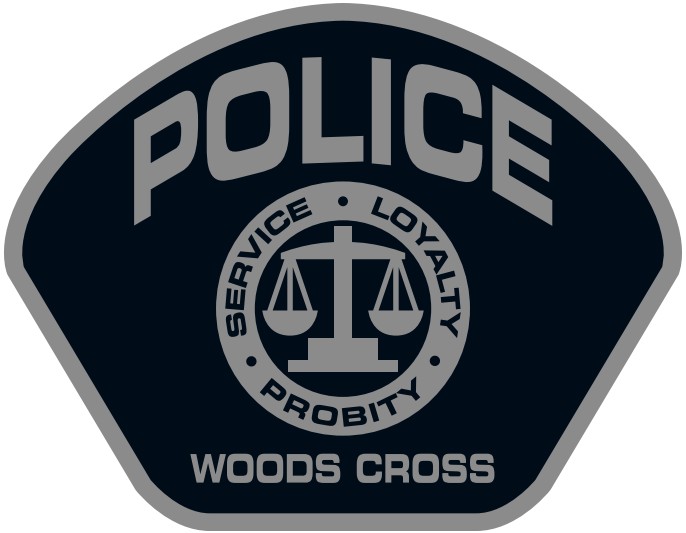

OFFICIAL WEB SITE OF THE
WOODS CROSS CITY
POLICE DEPARTMENT
SERVICE - LOYALTY - PROBITY
1555 South 800 West, Woods Cross, Utah 84087


D.A.R.E.
D.A.R.E. stands for Drug Abuse Resistance Education. It is a drug abuse prevention education program designed to equip elementary, middle and high school children with knowledge about drug abuse, the consequences of abuse, and skills for resisting peer pressure to experiment with drugs, alcohol and tobacco. Based on the premise that prevention is the only long-term answer to drug abuse, the program includes all 50 states and 53 countries. The D.A.R.E. program is taught in over 75% of the nation’s school districts, creating a positive atmosphere for students to interact with uniformed law enforcement officers.
This unique program uses uniformed law enforcement officers to teach a formal curriculum to students in a classroom setting.
- D.A.R.E. Provides Life Skills
- D.A.R.E. lesson plans focus on four major areas:
- Providing accurate information about drugs, alcohol and tobacco.
- Teaching students good decision-making skills.
- Showing students how to recognize and resist peer pressure.
- Giving students ideas for positive alternatives to drug use.
- D.A.R.E. school resource officers work with children to raise their self-esteem, teach them how to make decisions on their own, and help them identify positive alternatives to drugs. Through role-playing, the D.A.R.E., curriculum emphasizes the negative consequences of drug use, and reinforces the skills to resist peer pressure and intimidation.
- Key Program Elements
- D.A.R.E. is a cooperative effort by the police, schools, parents, and the community – all four working together to help our children make the right choices concerning drug use.
- One of the unique features of D.A.R.E. is the use of uniformed police officers as instructors. D.A.R.E. officers are assigned to a classroom “beat.” Gleaming with the latest in prevention science and teaching techniques, D.A.R.E. is reinventing itself as part of a major national research study that promises to help teachers and administrators cope with the thorny issues of school violence, budget cuts, and terrorism. The need for an effective education program to inoculate students against the threat of drugs is critical to the well being of our children and their future.
- The New D.A.R.E. Program
- “The New D.A.R.E. program is setting the gold standard for the future,” says Charlie Parsons, Executive Director of D.A.R.E. America. “Prevention inside the 21st Century school house will need to be diverse, accountable, and mean more things to more people, particularly with the safety issues that have emerged since Columbine and terrorist alerts. That’s one reason why every New D.A.R.E. officer is also being trained as a certified School Resource Officer (SRO).”
- The New D.A.R.E. curriculum is in its third year of a five-year national research effort funded by a grant from the Robert Wood Johnson Foundation. Under the direction of principal investigator, Dr. Zili Sloboda, the University of Akron’s Adolescent Substance Abuse Prevention Study is a rigorous scientific evaluation of the New D.A.R.E. curriculum designed to blend the latest in prevention science with the nation’s largest prevention delivery network-the D.A.R.E. program.
- D.A.R.E. teaches kids how to recognize and resist the direct and subtle pressures that influence them to experiment with alcohol, tobacco, marijuana, and other drugs. And since between 70% and 90% of all crime is drug related, it is absolutely vital that we reach the children of America before it is too late.
- The D.A.R.E. program is usually introduced to children in the 5th or 6th grade. A specially trained officer comes into your school and teaches the children. D.A.R.E. has launched a new elementary and a new middle school curriculum this year.
- What D.A.R.E. is Not
- Scare tactics – D.A.R.E. relies on accurate information and a straight-forward approach.
- A “Witch Hunt” – D.A.R.E. Officers NEVER encourage students to “turn in” family or friends who may be breaking the law. D.A.R.E. students are taught to say “someone I know . . . ” when sharing stories; never using real names.
- “Hands on drugs” – How drugs are used (methods) are not taught. Drugs are never taken into a classroom as part of D.A.R.E.
- Tips for Parents
- Establish family rules that make it clear that drug use will not be tolerated.
- Educate yourself about drugs, so you can talk informatively with your children and answer their questions.
- Spend time with your children listening to their concerns and showing how much you love and care for them.
- Recognize that YOU are their most important role model.
- Because peer pressure is a major factor in teen drug use, know your children’s friends.
- Talk with other parents. Try to establish uniform rules that make access to drugs harder, such as curfew and the amount of spending money they receive.
- If a problem exists, get help! Don’t say “Not my child!”